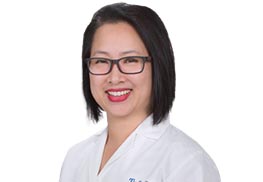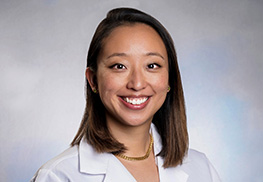- Patient Gateway
- Practice Locations
 Book An Appointment
Book An Appointment
Wellesley Women’s Care Genetic Testing Information
Screening for Genetic Disorders
This information sheet is for people who are pregnant or considering pregnancy who wish to know whether their children could be at risk for certain recessive genetic diseases.
What are recessive genetic diseases?
Genes direct our cells to make the proteins that make our bodies work. Human genes are contained in our chromosomes. In each of our cells, we have 2 copies of each chromosome and therefore 2 copies of each gene. Recessive genetic disorders occur when a person has a harmful change, or “mutation”, in both copies of a particular gene.
What is a carrier?
People who have one normal copy and one abnormal copies of a gene related to a specific genetic disease are called carriers of that disease. Carriers have no symptoms. Having one normal copy of the gene is enough to prevent these recessive diseases. A carrier can pass on either their normal or their abnormal copy of the gene to a child.
Who is at risk to have a recessive genetic disease?
Recessive disorders occur only when a person has mutations in both copies of the same gene. Though new mutations can occur spontaneously, a child usually can have a recessive genetic disease only if both parents carry a mutation in the same gene, and the child inherits both abnormal copies of the gene, one from each parent. If both parents carry mutations in the same gene, each time they conceive there is a 1 in 4 (25%) chance that the baby will have the disease, a 2 in 4 (50%) chance that the baby will be a carrier without symptoms, and a 1 in 4 (25%) chance that the baby will have a 2 normal copies of the gene.
Examples of recessive disorders include cystic fibrosis, sickle cell disease, Tay Sachs, and many others. Mutations for some recessive disorders are equally common in many ethnic groups. Other recessive disorders may be frequent in some populations and very rare in others. There are too many recessive mutations to test anyone for all of them. The American College of Obstetrics and Gynecology (ACOG) has recommended offering preconception or prenatal testing for several genetic disorders which are severe in childhood and for which effective screening tests are available.
Why consider testing?
For a few genetic disorders, early diagnosis allows families to start treatment early to improve the health of the affected child. However, in most cases there are not yet effective treatments. For all disorders the choice to have testing is up to the parents.
Couples who learn they are both carriers of a recessive disease and who do not want to bear a child with the disease have 4 choices:
- The can conceive naturally, and their fetus can be tested early in pregnancy with the option to terminate the pregnancy if the fetus is affected.
- They can choose to conceive using sperm or an egg donated by someone who does not have the mutation.
- They can choose to have in vitro fertilization, test the embryos for the mutation, and aim to select embryos that have at least one normal copy of the gene for transfer to produce a pregnancy.
- They could choose adoption.
What testing should couples consider?
All of us carry some recessive mutations, and it is not possible to detect all of them. Even within one gene there can be many possible mutations, and the tests offered do not detect every mutation. Fortunately, mutations for most recessive disorders are very rare so that it would be extremely rare for both parents to carry them.
Wellesley Women’s Care will recommend, based on your ethnicity either:
- Inheritest® - Society Guided Panel- Screens for 12 disorders included in the American College of Medical Genetics and Genomics and the American Congress of Obstetricians and Gynecologists guidelines.
- Inheritest® - Ashkenazi Jewish Panel- Screens for 39 disorders specific to indviduals of Ashkenazi Jewish descent.
Both are a comprehensive evaluation of the potential risk of having a child affected by a recessive genetic disorder.
For further details about this testing, please refer to the brochure included in your
RED FOLDER, our website careforwomen.com or the Integrated Genetics website
As always, your care provider will be happy to discuss and answer any questions you may have at your initial obstetrical visit.

 Menu
Menu








